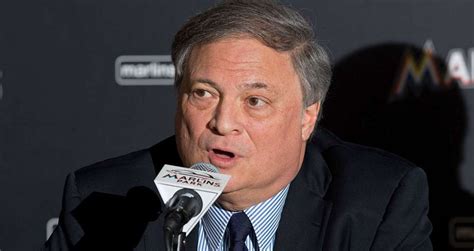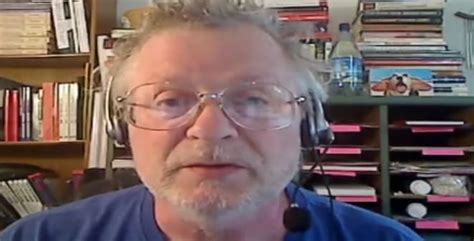A Quote by Jeffrey Loria
The real value of art is not always revealed by the price set upon it.
Related Quotes
Don't sell yourself short. No one will value you. Set a fair price for you, your book, your services, whatever it is that you have to offer. Most of us set way too low a price. Put it a little higher than you would normally be inclined to do. The worst that can happen is someone will come along and steal it.
Value in relation to price, not price alone, must determine your investment decisions. If you look to Mr Market as a creator of investment opportunities (where price departs from underlying value), you have the makings of a value investor. If you insist on looking to Mr Market for investment guidance however, you are probably best advised to hire someone else to manage your money.
One of the great arts in living is to learn the art of accurately appraising values. Everything that we think, that we earn, that we have given to us, that in any way touches our consciousness, has its own value. These values are apt to change with the mood, with time, or because of circumstances. We cannot safely tie to any material value. The values of all material possessions change continually, sometimes over night. Nothing of this nature has any permanent set value. The real values are those that stay by you, give you happiness and enrich you. They are the human values.
Edge also implies what Ben Graham....called a margin of safety. You have a margin of safety when you buy an asset at a price that is substantially less than its value. As Graham noted, the margin of safety 'is available for absorbing the effect of miscalculations or worse than average luck.' ...Graham expands, "The margin of safety is always dependent on the price paid. It will be large at one price, small at some higher price, nonexistent at some still higher price."
The value of any commodity, therefore, to the person who possesses it, and who means not to use or consume it himself, but to exchange it for other commodities, is equal to the quantity of labour which it enables him to purchase or command. Labour, therefore, is the real measure of the exchangeable value of all commodities. The real price of everything, what everything really costs to the man who wants to acquire it, is the toil and trouble of acquiring it.
Economists tell us that the 'price' of an object and its 'value' have very little or nothing to do with one another. 'Value' is entirely subjective economic value, anyway while 'price' reflects whatever a buyer is willing to give up to get the object in question, and whatever the seller is willing to accept to give it up. Both are governed by the Law of Marginal Utility, which is actually a law of psychology, rather than economics. For government to attempt to dictate a 'fair price' betrays complete misunderstanding of the entire process.
I buy stocks when they are battered. I am strict with my discipline. I always buy stocks with low price-earnings ratios, low price-to-book value ratios and higher-than-average yield. Academic studies have shown that a strategy of buying out-of-favor stocks with low P/E, price-to-book and price-to-cash flow ratios outperforms the market pretty consistently over long periods of time.
































